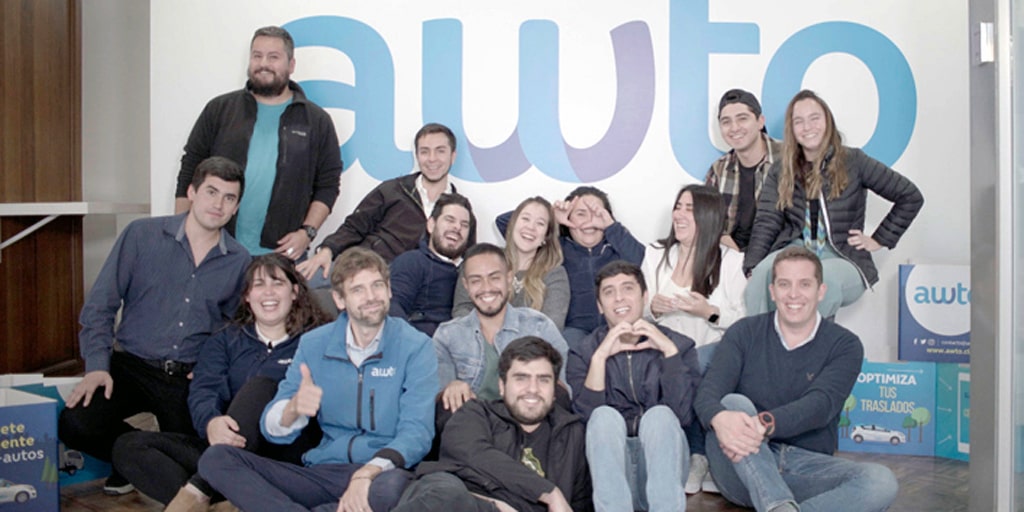
Report: The Magnificent Seven
As the biggest-ever platform shift in modern technology unfolds, together with D...

In conversation with Francisco Loehnert Tampier, co-founder and CEO of Awto, an autotech company providing a wide range of mobility solutions covering all main use cases of people living in Latin America's urban centers.
Founded in 2016, Awto facilitates people's access to quality vehicles through a mobility ecosystem that shares, subscribes and even sells pre-owned vehicles directly to consumers and corporations. For the automotive industry, Awto increases the participation of OEMs, dealers, insurance companies, automotive parts and services and many others, creating a true win-win situation for Awto, users and partners.
Awto is based in Santiago, Chile and São Paulo, Brazil.
Awto emerged from the need to address traffic problems, congestion, and emissions of polluting gasses in urban areas. These solutions also aimed to provide more accessible and economical transportation options for people, allowing them to use vehicles only for the time they truly needed them. The Kaufmann Group, a leader in the automotive industry in Latin America, seeking exceptional mobility services, decided to partner with a group of entrepreneurs to bring this startup to life in the year 2016.
We have been privileged to be supported by the Kaufmann Group from the very start. Without the Kaufmann Group Awto would have not been founded and achieved important milestones such as developing a proprietary tech platform, becoming Chile's leading car sharing operator, and expanding into Brazil. This initial support was strengthened when Zurich AGF, Indumotora and Chile Ventures became partners in 2021 when Awto raised its Series A round.
Awto's business model is based on offering users temporary access to vehicles that can be reserved and used according to their needs. This model focuses on providing a flexible and sustainable alternative to fleet usage by maximizing the vehicle's usage time (private vehicles are stationary 95% of the time), minimizing parked time as much as possible.
Today, we are creating a truly mobility ecosystem, investing in subscription models, corporate services, and mobility as a service, among other things.
Awto's growth plan involves a two-sided strategy:
Awto will focus in the creation and/or consolidation of the following services:
Awto achieved profitability in Chile for the first time in May 2021 and was profitable the whole 2021 and 2022.
Now, we have been investing a lot in order to create the installed capacity for the operation in Brazil plus selling fewer vehicles to increase our presence in the Chilean market; therefore achieving profitability in some months (but not in all of them) during 2023.
The objective is to achieve break-even in whole Awto Latam (including Awto Brazil where it started operations in December of 2022) by the beginning of 2026 (considering the execution of a Series B fundraise in the first semester of 2024 and that additional horizontal expansion be done as budgets allow).
Here are some key aspects of the Chilean tech ecosystem's evolution during those years:
Startup Culture and Support
Increased Government Initiatives: The Chilean government has implemented various initiatives and programs to support entrepreneurship and innovation.
Access to Funding
Growing Investment Landscape: The availability of venture capital and angel investment in Chile has likely increased, enabling startups like Awto to secure funding for expansion and innovation.
Maturation of Startups
Success Stories and Exits: The ecosystem has likely seen the emergence of successful startups and notable exits, contributing to a more mature and robust environment.
Global Reach
Companies like Awto expanding abroad demonstrate the growing confidence and global competitiveness of Chilean startups. This internationalization contributes to the diversification and strengthening of the overall ecosystem.
Increased Tech Adoption
The broader adoption of technology across industries has likely accelerated.
Networking and Collaboration
The tech community in Chile has likely become more interconnected. Collaborations between startups, corporations, academia, and government entities have likely increased.
Diversification
The tech ecosystem has likely diversified into new sectors such as mobility services, fintech, and other emerging technologies.
Over the years, the Chilean tech ecosystem has experienced notable growth, increased international visibility, and a maturation of its startup culture. Awto's journey from Chile to international expansion is indicative of the country's progress in becoming a thriving innovation hub in the region.
Brazil itself is almost a continent that also has great economic stability in the region. We conducted a market attractiveness model in Latin America with different variables. Through this, we visited more than 20 cities. We realized that in Brazil, it was essential to do business with a local team. As a result, we decided to join forces with two serial entrepreneurs with experience in shared mobility, which was a key factor in making the decision.
Starting a business in Brazil is an excellent idea due to its vast domestic market with a sizable and diverse population. Moreover, the country boasts abundant natural resources, a growing economy, and government policies that encourage investment and entrepreneurial development. Brazil's entrepreneurial culture is vibrant, creating a conducive environment for growth and innovation.
We know that the mobility industry is constantly changing. We have to keep learning about the changes in the behavior of our users.
We see an optimistic future, with a less polluted and less congested Santiago, Buenos Aires, São Paulo etc.; we want to contribute our grain of sand to achieve this. Each Awto is already taking 6-7 private vehicles off the roads, and there are four essential trends that will continue to happen, and we want to compete in all of them: car sharing, vehicle connectivity, electromobility, and autonomous driving. Our purpose is that "sharing is the KEY in a growing society, on a planet that remains the same size."
In 5 years, we hope to be at the forefront of this beautiful challenge, with the consolidation of the Chile and Brazil markets, and executing our Series C, thus opening the markets in Colombia and Mexico, robustly implementing our mobility ecosystems. In terms of numbers, we expect to have more than 10,000 Awto vehicles connected in the most important cities in Latin America.
In 10 years our ambition is to have +20,000 connected vehicles and continue offsetting all the CO2 we emit, as we have done in the last 6 years.

Francisco s a highly accomplished professional with interdisciplinary experience in the mobility and FMCG industry. Before starting Awto in 2016, Francisco worked for Accenture in Germany as well as co-founded both Top Toilet, a portable and luxury bathroom rental company, and Appetite, a company dedicated to delivering tailor-made IT services.

As the biggest-ever platform shift in modern technology unfolds, together with D...

We are formally launching our tech sector coverage in Latin America, an ever-evo...

In conversation with Francisco Loehnert, co-founder and CEO of Awto, an autotech...

In conversation with Gabriela Estrada, co-founder and CEO of Vexi, a neobanking ...

2023 has been a wild ride in tech. From the rise of gen AI to public valuation m...

We checked in on the data and trends driving the global startup, tech and ventur...

We partnered with Dealroom to deliver the latest update on European tech ecosyst...

With the proliferation of new technologies comes the growing number and complexi...

Beyond understanding the corporate finance principles behind company valuation m...

Software as a Service (SaaS) business model has been around for a while, growing...

ARPPU, or 'Average Revenue per Paying User', is a measurement of the predicted r...

While most management teams tend to be overly optimistic when putting together f...

Company valuation is a key aspect of corporate finance that is used to determine...

South Korea is the fastest growing Asian Tiger nation for VC investment, and Seo...

Deliveroo is reported to target a $10B valuation in an upcoming IPO. In preparat...

In this report, we take a deep dive into the creator economy ecosystem to analyz...

Climate change is one of the most threatening crises of our time and the world n...

This was a pretty crazy year, to say at least. The COVID-19 health crisis, while...